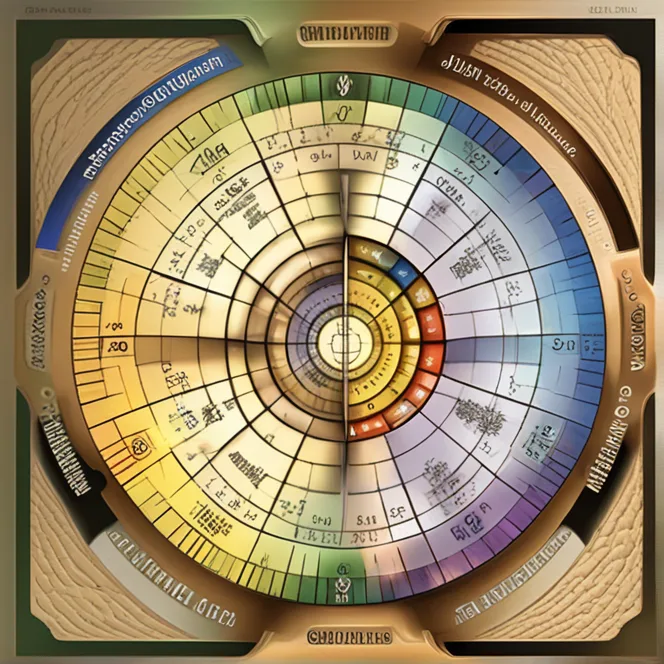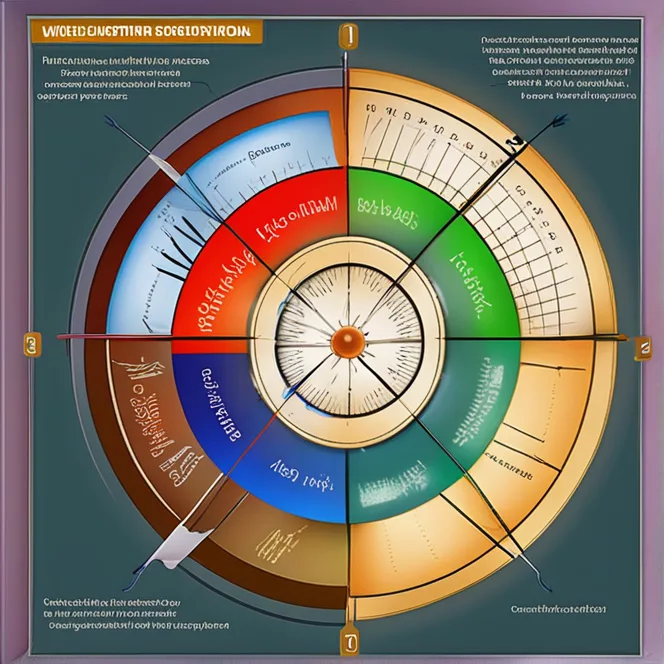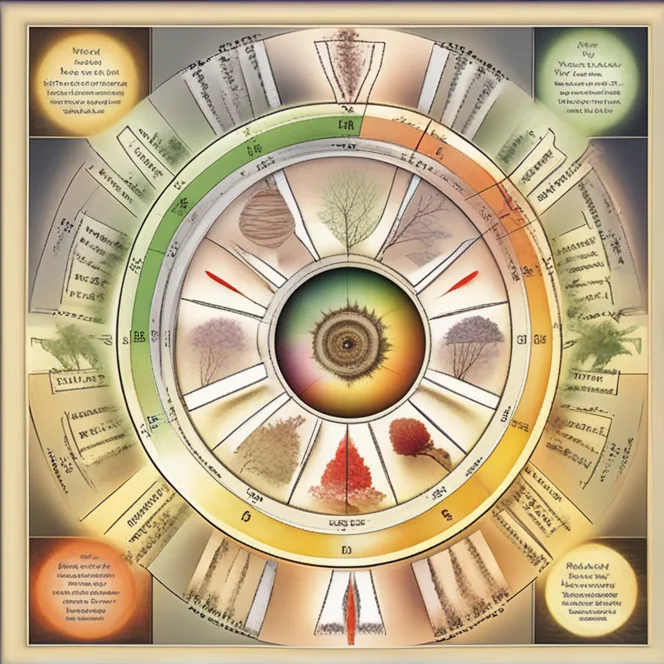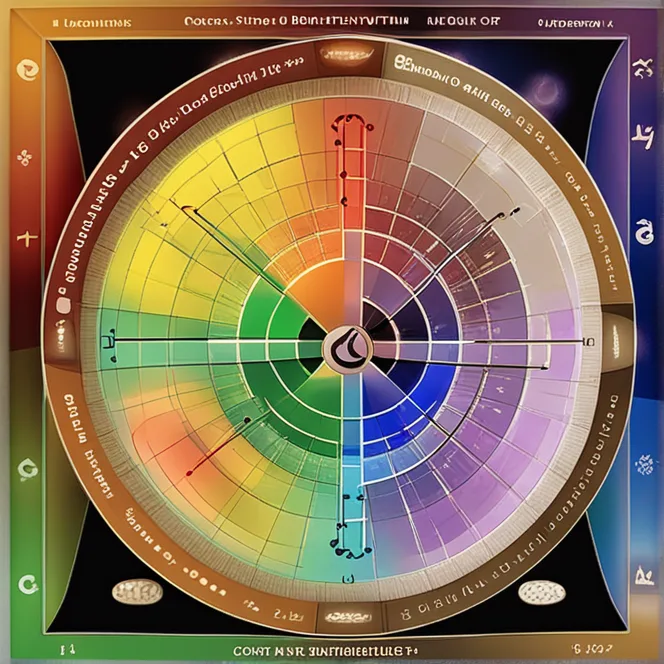
Biorhythm Wheel: Unlocking The Secrets
Explore the intriguing world of the biorhythm wheel to understand your physical, emotional, and intellectual cycles for enhanced well-being.
article by Adrian Wallace
Biorhythms are a fascinating concept that suggests our lives are influenced by natural mathematical cycles. They assert that our physical, emotional, and intellectual capabilities are not constant but rise and fall in predictable patterns. The biorhythm wheel is a tool designed to graphically represent these cycles, providing insights that may help individuals make more informed decisions about their day-to-day lives. This esoteric art dates back over a century and is rooted in the notion that rhythms of the body align with cycles of time. By understanding these patterns, one can potentially enhance their overall well-being.

Understanding the Biorhythm Wheel
The biorhythm wheel is composed of three primary cycles: the Physical (23 days), Emotional (28 days), and Intellectual (33 days) cycles. Each cycle starts at the point of birth and oscillates in a sine wave, with the top half representing a high phase and the bottom half representing a low phase. The crossing point, or zero line, denotes a time of transition or critical days, where one might feel off balance. By plotting these cycles on the wheel, one can visualize how they intersect and influence each other, and, in turn, the individual's day-to-day potential in various aspects of life.

The Significance of Each Cycle
The Physical cycle is said to influence strength, stamina, and overall physical condition. When this curve is high, one might feel energized and at peak physical performance, while a low physical curve may suggest a need for rest and recuperation. The Emotional cycle governs mood, creativity, and sensitivity. High points often coincide with feelings of positivity and emotional resilience, while low points might be times of emotional sensitivity or moodiness. The Intellectual cycle affects cognitive functions, decision-making, and clarity of thought. Intellectual highs might be ideal periods for problem-solving and learning, while during lows, one may find it harder to concentrate or think logically.

Applying Biorhythms to Everyday Life
Leveraging the biorhythm wheel can be helpful in planning and anticipating individual capabilities and emotional states. Someone could schedule important meetings or events on days when their intellectual cycle is high, or they might avoid stressful situations during a low emotional period. Athletes might plan training and competitions around their physical cycle peaks. Nonetheless, it's important to recognize that biorhythms are just one of many factors that can influence our day-to-day lives and are best considered alongside other personal and contextual factors.

Critical Days and Biorhythms
Critical days occur when any biorhythm cycle crosses the zero line. During such periods, individuals should exercise caution as they may be more prone to accidents, errors, or emotional upheavals. Awareness of one's critical days allows for preventive measures, like reducing risk-taking activities or allowing extra time for reflection and rest. While not all critical days will have a noticeable impact, many followers of biorhythms testify to their increased vulnerability during these transition phases.
Biorhythms in Compatibility and Relationships
Biorhythms are also used for assessing compatibility between individuals. By comparing the cycles of partners, friends, or colleagues, one might better understand the dynamics and potential friction points in relationships. For instance, if both individuals are experiencing a low in the emotional cycle at the same time, it could be a period of misunderstandings or heightened sensitivities that might require extra empathy and communication.
Limitations and Perspectives
While many find value in the biorhythm wheel, scientific consensus on its effectiveness remains inconclusive. Critics argue that personal experience and the placebo effect play significant roles in perceived results, and individual differences can lead to variations that are not accounted for by the model. Regardless, many users claim that the awareness provided by tracking their cycles contributes to a greater understanding of themselves and their interactions with the world. As with all tools of self-discovery, personal experimentation and discretion are advised.
Published: 12/12/2023
Modified: 12/12/2023
More predictions
Come back here soon to learn more about yourself and your future


Examining The Reality Of Biorhythms
Explore the concept of biorhythms to understand if there's scientific support for this cycle-based approach to predicting personal vitality and compatibility.


Biorhythms: Life's Natural Cycles
Explore the meaning of biorhythms and how these natural cycles can influence physical, emotional, and intellectual states in our daily lives.


Is Biorhythm A Real Phenomenon?
Explore the validity of biorhythms as we delve into scientific scrutiny and cultural beliefs regarding our biological cycles and their supposed impact on our daily lives.